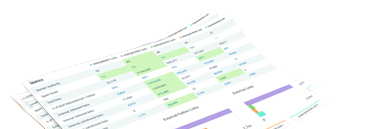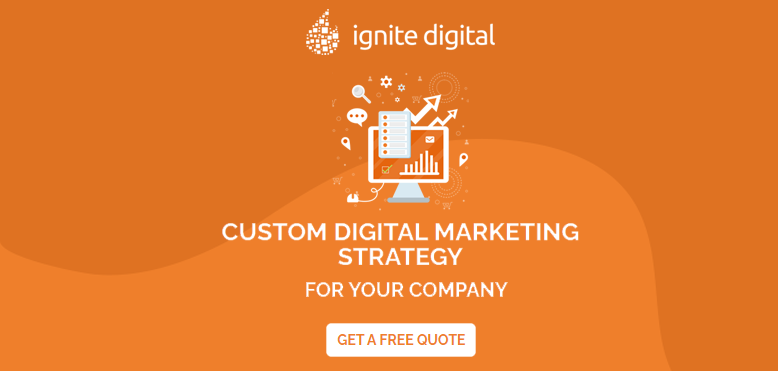Did you know that Google has around 60,000 servers scattered across the globe specifically dedicated to indexing the web? Or that it can take a search engine anywhere from a few milliseconds to a few minutes to return results to your query? If you’re curious about how search engines work – and how your business can optimize its website for top rankings – read on. We’ll break down the three core components of search engine optimization: crawling, indexing, and ranking. You’ll learn what each one means, what you need to do to help your website rank higher, and some tips for staying ahead of the curve. SEO may seem complex, but with this guide, you’ll be able to make your site shine in no time!
What is a search engine and how does it work?
A search engine is a program that helps users find information on the Internet. When you search for something on Google, for example, the engine will return a list of relevant websites. It does this by crawling the web and indexing all the pages it finds. To make your website rank higher, you need to optimize your content and website structure. You can also promote your website through social media and other online channels. By following these tips, you can improve your website’s visibility and rank on search engine results pages.
How Search Engines Work
Search engines use a variety of methods to determine a website’s rank in SERPs. One of the most important is the website’s content. The search engine will look at the title, meta description, and keywords to get an idea of what the page is about. The engine will also look at the structure of the website and how easy it is to navigate. If a website is well-structured and has relevant content, it is more likely to rank higher in SERPs.
Another important factor is the amount of fresh content on a website. The search engine will want to see new pages added regularly in order to consider the website updated. Promoting your website through social media and other online channels can also help improve your ranking.
The crawling process – how search engines find and index websites
First, let’s talk about what crawling is
To understand how search engines work, you first need to know about the crawling and indexing process. Crawling is when a search engine visits websites and collects information about them. This information is then added to the engine’s index, which is a database of all the pages it has found. To make your website rank higher, you need to optimize your content and website structure.
How Google Crawls Your Website
Search engines use a variety of methods to determine how user-friendly a website is.
- Website Structure: One of the most important is the website’s structure. If a website is well-structured and easy to navigate, it is more likely to rank higher in SERPs. The search engine will also look at how easy it is to find information on the website. If a user can’t find what they’re looking for quickly, they are likely to leave the site. Therefore, it is important to make your website’s content easy to find and navigate.
- Content: Another important factor is the amount of fresh content on a website. The search engine will want to see new pages added regularly in order to consider the website updated.
Some websites are better crawled than others. Google has a process called PageRank that helps it determine which pages to crawl and how often to crawl them. A website’s PageRank is based on a number of factors, including the number of links to the page, the quality of the links, and the age of the page.
When Google crawls a website, it looks for the best pages to show in its search results. It calculates a score for each page based on the above factors, and then chooses the pages with the highest scores. This is why it’s important to have high-quality links pointing to your website, as well as fresh, relevant content.
Indexing – how search engines assign a relevant ranking to all the pages in their database
When a search engine crawls a website, it looks for the best pages to show in its search results. It calculates a score for each page based on the following factors:
- The number of links to the page
The quality of the links
The age of the page
The search engine then chooses the pages with the highest scores to rank higher in SERPs. This is why it’s important to have high-quality links pointing to your website, as well as fresh, relevant content.
The ranking process – how search engines determine which websites to show in response to a user’s query
The Ranking Process
After a website has been crawled and added to the index, the search engine will assign it a rank. This rank is based on several factors, including the quality of the content, the structure of the website, and how popular the site is. The higher a website ranks, the more likely it is to appear at the top of SERPs.
When A User Enters A Query
When a user enters a query into a search engine, the engine will scour its database of websites for the most relevant results. The relevance of a website is determined by a variety of factors, including the content of the site, the number and quality of links to the site, and the popularity of the site.
Search engines use a variety of methods to determine which websites are the most relevant for a given query. The most popular search engine, Google, uses a technology called PageRank to help it find the most relevant results. PageRank works by counting the number and quality of links to a website. A website with many high-quality links is more likely to be relevant than a website with fewer links.
In addition to PageRank, Google also uses other methods to determine the relevance of a website. Google’s algorithms are constantly changing, and the company does not release detailed information on how they work. However, we do know that Google takes into account the content of a website, the number of visitors to the site, the site’s popularity on social media, and many other factors.
Check Your Ranking
There are many ways to check your business’s ranking.
- One way is to use a search engine such as Google and type in “your business name + review” (e.g. “Ignite Digital review”). This will bring up any online reviews of your business.
- Another way to check your business’s ranking is to look at your website’s traffic statistics. If you have a Google Analytics account, you can see how many people are visiting your site and where they’re coming from. This will give you an idea of how popular your site is and how well it’s performing in the search engines.
- You can also use a tool like Moz’s Open Site Explorer to see how your site is doing in the search engines. This tool will show you things like your site’s backlinks and keyword rankings.
Finally, you can always ask your customers or clients how they found out about your business. This can give you an idea of what marketing channels are working well for you and which ones you need to work on.
How you can optimize your website for better ranking
Search engines have always been important for businesses, but their role has changed over time. In the early days of the Internet, most people used search engines to find information about specific topics. But as the web has become more commercialized, search engines have become an essential tool for businesses looking to reach new customers. Today, almost every business has a website, and many rely on search engine optimization (SEO) to improve their ranking in search engine results pages (SERPs).
How to Get A Better Ranking
When it comes to optimizing a website for better ranking, there are a few key things that businesses should focus on.
- One of the most important is making sure that the website is updated regularly with new content. This includes both blog posts and articles.
- In addition, businesses should make sure that their website is properly coded and has a good layout that is easy for users to navigate.
- Finally, businesses should focus on building backlinks to their website from high-quality websites.
By following these steps, businesses can improve their chances of ranking higher in the search engines and getting more traffic to their website.
However, it’s important to keep in mind that SEO is an ongoing process, not a one-time thing. To maintain and improve your website’s ranking, you’ll need to regularly add new content, tweak your website’s design and coding, and build backlinks from other websites. While it may take some time and effort to get your website to the top of the search engines, it will be worth it in the long run when you start getting more traffic and customers.
Why You May Have A Bad Ranking
There are a number of reasons why a business might have a bad ranking on Google.
- One reason is that the business might not be following Google’s Webmaster Guidelines.
- Another reason is that the website might not be optimized for search engines, or the website might not be updated regularly. If a website is not optimized for search engines, it will not rank well in the search results. If a website is not updated regularly, it will also not rank well.
- Another reason why a website might have a bad ranking on Google is that the website might be using black hat SEO techniques. Black hat SEO techniques are techniques that are used to artificially inflate a website’s ranking on Google.
These techniques are against Google’s guidelines, and they can result in a website being banned from Google. If you want your website to rank well on Google, you need to make sure that you are following Google’s guidelines.
What If You’ve Been Penalized?
If your website has been hit with a Google penalty, there are a few things you can do to try to recover your ranking. The first thing you should do is identify the cause of the penalty. Once you know what caused the penalty, you can start to make the necessary changes to your website. You should also submit a reconsideration request to Google. This request asks Google to take another look at your website and see if it meets its guidelines.
If you’ve been hit with a Google penalty, the first thing you need to do is figure out what caused the penalty. There are a few different reasons why your site might have been penalized, and once you know the reason, you can start to make the necessary changes to your website. One common reason for a penalty is if your site has been engaging in black hat SEO tactics. These are techniques that are designed to game the system and get your site to rank higher in the search results, but they’re against Google’s guidelines. Some examples of black hat techniques include keyword stuffing, cloaking, and doorway pages. If you’ve been using any of these techniques, you’ll need to stop and make sure that all of your content is in line with Google’s guidelines.
Another reason for a penalty is if your site has thin or duplicate content. This means that your pages don’t offer much value to users, or that you have a lot of pages that are the same. To fix this, you’ll need to add more content to your site that is valuable and unique. You should also try to consolidate any duplicate content so that there is only one version of it on your site.
If you’re not sure why you were penalized, you can submit a reconsideration request to Google. This is where you explain what changes you’ve made to your site and why you think your site should be reinstated. Google will then take another look at your site and decide whether or not to lift the penalty.
Easy Things You Can Be Doing Right Now To Improve Your Ranking
If you want your website to rank higher, you need to optimize your site for the search engine.
You can improve your ranking by:
- Using descriptive titles and meta descriptions: Make sure that your title tags and meta descriptions are clear, concise, and keyword-rich. You want to make sure that they accurately reflect what your business does and what you offer. You also want to use keywords that potential customers are likely to search for.
- Optimizing your website’s structure and navigability: Website structure and navigability are important for a number of reasons. First, if your website’s structure isn’t intuitive, visitors will quickly leave your site. Second, search engines use website structure and navigability as factors in determining your site’s rank. And finally, poorly organized websites are often difficult to maintain and update.
- Using keyword-rich content: keyword-rich content can be beneficial for both your website’s visibility and your audience engagement. When writing content for your website, be sure to include relevant keywords throughout, including in the title, in the body copy, and any meta tags or alt text associated with images. However, don’t stuff your content with keywords; instead, use them thoughtfully and sparingly to avoid coming across as spammy.
- Adding fresh content regularly: One way to add fresh content regularly to your website is by writing blog posts. You can also add new content by posting photos and videos, or by updating your About Us page. You can also promote your website on social media, and participate in online forums and discussions. By regularly adding new content to your website, you can attract new visitors and keep them coming back for more.
- Promoting your website through social media and other online channels: It is important because it helps potential customers and clients learn about your business and what you have to offer. It also helps you build relationships with potential customers, which can result in more sales in the future. Additionally, promoting your website through your online channels can help you rank higher in search engine results pages (SERPs), which can lead to more website visitors and potential customers.
Recent changes to the Google algorithm and their impact on SEO
Google has been making some recent changes to its algorithm that have been impacting how websites are ranked in search results. These changes have been causing a lot of anxiety among webmasters who are trying to optimize their websites for Google searches.
These changes have been primarily aimed at improving the user experience on Google. For example, Google has been giving more weight to websites that are mobile-friendly and load quickly. This is because Google knows that users are increasingly using mobile devices to access the internet, and they want to make sure that these users have a good experience when they do so.
Google has also been de-emphasizing certain types of content, such as Flash animations and videos, in favor of other types of content that are more user-friendly. This is because Google knows that users are less likely to engage with this type of content.
Google is constantly changing its algorithm, and these changes can be difficult to keep up with. However, if you want your website to be successful on Google, it’s important to stay up-to-date with the latest changes.
Tools You Can Use
Google offers a number of free tools businesses can use to help them show up in its algorithm. These tools include:
- Google Search Console: The Google Search Console helps businesses track their website’s performance on Google search results pages
- Google AdWords: Google AdWords allows businesses to create and manage ad campaigns
- Google Analytics, soon to be GA4: Finally, Google Analytics provides businesses with insights into how their website is being used by visitors.
Google My Business
In addition to these free tools, businesses can also use Google My Business to manage their business information on Google Maps and search results. Google My Business is a free tool that allows businesses to add and update their business information, such as their hours of operation, address, and phone number. Google My Business also allows businesses to post updates and photos, which can appear in Google search results and on Google Maps.
Businesses can use these free tools to improve their visibility on Google and reach more potential customers. By taking advantage of these tools, businesses can ensure that they are appearing in front of the right people at the right time.
The future of search engines and SEO
The future of search engines and SEO is shrouded in uncertainty. However, there are a few things that we can be sure of. Firstly, search engines will continue to play a major role in online marketing. Secondly, SEO will remain an important part of online marketing. Finally, the future of search engines is likely to be dominated by artificial intelligence.
These three factors are likely to have a major impact on the future of search engines and SEO.
- Firstly, search engines will continue to play a major role in online marketing. This is because they are an essential tool for helping people find information online. Without them, it would be very difficult for people to find the products and services they need.
- Secondly, SEO will remain an important part of online marketing. This is because it is a process that helps to improve the visibility of a website on search engine results pages. This can be beneficial for both businesses and individuals.
- Finally, the future of search engines is likely to be dominated by artificial intelligence. This is because this technology is becoming increasingly sophisticated and can process large amounts of data very quickly. This means that it will be able to provide more relevant and accurate results for users.
So, what does all of this mean for you and your website? To rank higher in search engine results pages (SERPs), you need to optimize your content and website structure. This means making sure your site is easy to crawl and index by search engines. You can do this by using the correct keywords throughout your content, as well as creating a sitemap and submitting it to Google. Additionally, make sure that all of your web pages are linked together correctly. If you follow these tips, you’ll be on your way to better SEO and higher rankings! Want more information about how to improve your website ranking? Sign up for our newsletter and we’ll send you our free guide on SEO basics.




